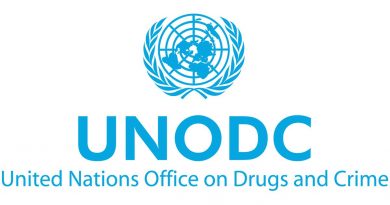CULTIVATING A SUSTAINABLE FUTURE: Why Organic Agriculture is Key to a Nation’s Environmental and Economic Resilience.
By Iyke Ezeugo
Although it may appear sardonic, it is not completely out of place to start this piece with Newton’s Third Law of Agriculture.
In the grand tapestry of the universe, where Sir Isaac Newton’s apple defied gravity to revolutionize physics, Nigeria’s soil is equally poised to defy chemical degradation and usher in, promote, and support an era of return to nature through organic agriculture.
Just as every action has an equal and opposite reaction, our relentless pursuit of industrial agriculture and relegation of organic farming has inevitably led us to seek solace in nature’s time-tested methods. Perhaps it’s time we heed Newton’s unspoken fourth law: “For every synthetic fertilizer, chemical herbicide or insecticide spread, there is an equal and opposite reaction in nature poisoning through ecosystem destabilization resulting in is environmental degradation and human health destruction.”
In an era where the hope of victory in our battle with stubborn and alien diseases is daily becoming more elusive, a swift u-turn to the wisdom of nature to nourish ourselves with organically grown foods, untainted by synthetic chemicals and alien substances has been advocated by medical and health experts and in fact by all but those with vested interests whose careers and businesses are tied to the production and promotion of these synthetic chemicals and allied businesses.
It’s common knowledge that by embracing the ancient harmony of soil, seed, and season, we can cultivate a deeper connection to the land and our own well-being. Organic foods, born from the earth’s own rhythms and cycles, hold the power to preserve our health, promote our well-being, and facilitate healing. Health experts across the globe have continued to advise that the best we can offer ourselves is to choose to feed ourselves with the vibrant, unadulterated clean essence of nature. There are unchallenged proofs that in doing so, we reclaim our vitality, resilience, and wholeness. For in the purity of organic foods lies the promise of healthier humans, where the bodies and the earth thrive in tandem.
The importance of choosing organically grown foods, free from synthetic chemicals, to promote both health preservation, well-being promotion and healing cannot be overemphasized and has also not been denied even by the proponents of synthetic chemicals. Their strongest argument for synthetic chemicals is the commercial factor—farming for mass production which they argue requires easy ways that can enhance cultivation speed and volume at a reduced cost. They have not denied the fact that these synthetic chemicals cannot be consumed by humans without dire consequences and that it’s not impossible for these chemicals to leave residues on the plants and environment that will eventually find their ways into the human body directly or indirectly. They have also not denied the interconnectedness of our well-being and the natural world, but have difficulties openly encouraging a return to nature’s wisdom for a healthier future, or focusing their research on how we can overcome the cost and scale concerns of Organic Agriculture. Who said solution is impossible if research is focused on this?
Historical Context and Current Trends:
Nigeria’s agricultural heritage is deeply rooted in traditional farming methods, which have sustained communities for generations. However, the advent of industrial agriculture and quest to make more money from every endeavor or feed multitudes from a hundred square meters plot of land brought about the extensive use of chemical fertilizers, pesticides, herbicides, and some unsafe genetically modified organisms (GMOs). While these methods initially boosted productivity and satisfied the quest for mass feeding, they have led to soil degradation, water and air pollution, a decline in biodiversity, destruction of the ecosystem, and negative impact on human and animal health.
Globally, there is a growing trend towards organic agriculture. Countries like Germany, Australia, and the United States have seen significant growth in their organic sectors because they are taking deliberate steps towards its promotion and support. Where knowledge is not lacking and extreme poverty and hunger are not prevalent, this is driven by consumer demand for healthier and environmentally friendly products. In Africa, nations such as Uganda and Tanzania are making strides in organic farming, positioning themselves as leaders in sustainable agriculture and food safety. Of course, not every giant loses its senses to disproportionate growth. Nigeria, the giant of Africa, may need help to demonstrate that it still has its senses intact in relevant areas, particularly for the health of its people now that diseases of alien natures are holding the nation hostage, including cancer and organ failures which have become ubiquitous.
Evidence-Based Perspectives on Synthetic Fertilizers, Herbicides, and Insecticides:
Numerous organizations and individuals of global repute have voiced concerns about the detrimental effects of synthetic fertilizers, herbicides, and insecticides on food and agriculture. Their arguments are often substantiated by empirical evidence.
1. The World Wildlife Fund (WWF): Following concerns on environmental implications, habitat destruction, and climate change, the WWF sponsored evidence-based research gathering data on pesticide pollution, wildlife population decline, and deforestation. The research concluded that “Synthetic chemicals threaten biodiversity and ecosystem services.”
2. The United Nations Environment Programme (UNEP): Based on concerns for global risks to human health and environment, the UNEP sponsored comprehensive assessments of global environmental situations by scientists. The research submitted that “Sustainable agriculture is crucial for environmental protection and human well-being.”
3. The World Health Organization (WHO): Responding to the increasing worries about exposure to certain pesticides that can increase cancer risk and neurological damage, the WHO sponsored research classifying pesticides as “probably carcinogenic to humans” (2015). The research finding concludes that “Pesticide exposure poses significant health risks, necessitating safer alternatives.”
4. The Environmental Protection Agency (EPA): Following public and health experts’ worries about pesticide exposure that can harm human health and contaminate water sources, the EPA sponsored research documenting pesticide usage in the “Pesticide Industry Sales and Usage” report (2020). The research concluded that “Pesticide use must be minimized to protect human health and the environment.”
5. The European Food Safety Authority (EFSA): Following concerns on pesticide residues in food posing health risks, the EFSA sponsored assessments of pesticide residue risks. The research submitted that “Pesticide residues in food require careful monitoring and regulation.”
6. The National Institutes of Health (NIH): Based on concerns about pesticide exposure linked to neurological disorders and cancer, the NIH sponsored research studies documenting health risks. The research finding concludes that “Pesticide exposure poses significant health risks, necessitating safer alternatives.”
7. The Union of Concerned Scientists (UCS): Following concerns on overuse of synthetic fertilizers contributing to climate change and water pollution, the UCS sponsored research on environmental impacts of synthetic fertilizers. The research submitted that “Sustainable agriculture practices are crucial for mitigating climate change and protecting water resources.”
8. The Food and Agriculture Organization (FAO): Necessitated by concerns on sustainable agriculture practices improving soil health and biodiversity, the FAO sponsored research highlighting benefits of sustainable agriculture in the “Save and Grow” report (2011). The research submitted that “Sustainable agriculture is essential for ensuring food security and environmental sustainability.”
9. The Organic Consumers Association (OCA): Following increasing public and experts worries about negative impacts of synthetic chemicals on human health, environment, and soil fertility, the OCA sponsored research on pesticide residues, pollinator decline, and soil health. The research finding concludes that “Synthetic chemicals undermine our health, environment, and soil’s future.”
10. The International Federation of Organic Agriculture Movements (IFOAM): Focused on the promotion of organic agriculture as a viable alternative, IFOAM sponsored evidence-based research on the comparative performance of organic and conventional farming. The report concluded that “Organic agriculture offers a sustainable solution for food security and environmental protection.”
There are innumerable additional notable sources involving institutional and independent studies documenting negative impacts of synthetic chemicals by scientists and researchers. The core arguments with evidence center on:
Environmental Impact: Synthetic chemicals contribute to water pollution, soil degradation, biodiversity loss, and climate change.
– Human Health Risks: Exposure linked to cancer, reproductive problems, and neurological disorders.
– Economic Costs: Overuse can lead to increased production costs for farmers.
– Social Implications: Displacement of small-scale farmers and contribution to rural poverty.
Nigeria’s Current State Assessment
Nigeria’s agricultural sector contributes about 24% to the country’s GDP and employs approximately 70% of the country’s productive labor force, even though this consists of the substantive, mini and microscopic segments. However, the sector faces challenges such as very discouraging low productivity, high post-harvest losses, environmental degradation, and frustrating produce discrimination in the global market. According to the Food and Agriculture Organization (FAO), Nigeria’s soil quality has been declining due to overuse of chemical fertilizers and poor land management practices. Above is that direct answer to the reason behind the global market discrimination.
The Organic Agriculture Project in Tertiary Institutions in Nigeria (OAPTIN) has been instrumental in promoting organic farming practices. Various institutions, including the Federal University of Agriculture, Abeokuta (FUNAAB), and Michael Okpara University of Agriculture, Umudike (MOUAU), have also incorporated organic agriculture into their curricula, research, and outreach programs.
Global Perception and Ratings
Nigeria’s organic agriculture sector is still in its nascent stage compared to other countries. According to the Research Institute of Organic Agriculture (FiBL) and IFOAM – Organics International, Nigeria lags behind in organic farming adoption, with less than 1% of its agricultural land under organic cultivation. However, there is growing interest and potential for expansion, driven by increasing awareness of the benefits of organic produce, consequences of embracing synthetic or chemical farming supports, and strategies for overcoming common issues.
Government and Farmers’ Activities
The Nigerian government has undoubtedly taken some steps to support organic agriculture. There is the National Organic Agriculture Development Program (NOADP) which aims to promote organic farming through policy support, training, and certification. The Nigeria Organic Agriculture Network (NOAN) is also meant to play a key role in fostering collaboration among stakeholders, disseminating information, and advocating for organic farming practices.
However, the current reality paints a picture of lofty ambitions with a tragicomic twist. Despite the establishment of programs like NOADP and organizations such as NOAN, the organic agriculture sector often feels like a grand theater where the lead actors are perpetually missing their cues. Bureaucratic bottlenecks, inadequate funding, and limited awareness among farmers are akin to missed rehearsals, leaving the audience (i.e., the farmers and consumers) in a state of perpetual suspense.
Farmers, on their part, are caught in a Shakespearean dilemma—“to be or not to be” organic. While some progressive farmers have embraced organic practices, buoyed by the promise of healthier produce and better market prices, others remain skeptical, hampered by the initial costs of transitioning to organic methods, lack of technical know-how, inadequate access to organic inputs, and confusion surrounding the promotion of agrochemicals and ‘high yield improved’ by dealers and GMO promoters. This skepticism is not without reason; the path to organic farming can seem like a Herculean labor, requiring significant investment and perseverance. But is there anything good in life that comes without a cost?
Policy Recommendations
To truly herald an era of sustainable and organic agriculture in Nigeria, a paradigm shift is needed—one that transforms our current comedy of errors into a well-orchestrated symphony.
1. Increased Funding and Support: The government should significantly increase funding for organic agriculture initiatives. This includes providing subsidies for organic inputs, technical and financial support for transitioning farmers, and investment in research and development.
2. Education and Training: Comprehensive training programs should be established to educate farmers on organic farming techniques, soil health management, and pest control without synthetic chemicals. Extension services should be strengthened to provide ongoing support.
3. Market Development: Efforts should be made to develop and expand markets for organic produce. This includes creating certification systems, establishing organic markets, and promoting consumer awareness about the benefits of organic products.
4. Research and Innovation: Establishment of Organic Agriculture research institute and investing in research to develop locally adapted organic farming techniques and inputs is crucial. Collaboration of this Institute with academic institutions and international bodies can enhance innovation and knowledge transfer.
5. International Collaboration: Nigeria should seek partnerships with countries that have advanced organic agriculture sectors. This can facilitate knowledge exchange, capacity building, and access to international funds and markets for Nigerian organic products.
The Endgame
In conclusion, organic agriculture presents a promising path towards a sustainable and prosperous future for Nigeria. While the journey may be fraught with challenges and comical missteps, the potential rewards—in terms of environmental health, economic growth, and human well-being—are immense. By embracing the wisdom of nature and fostering a culture of organic farming, Nigeria can transform its agricultural landscape and reap the benefits of a greener, healthier, and more sustainable future.
As we navigate this path, let us remember the words of Rachel Carson, whose groundbreaking work, Silent Spring, highlighted the perils of synthetic chemicals: “Those who contemplate the beauty of the earth find reserves of strength that will endure as long as life lasts.” In the end, the true essence of agriculture lies not in the chemical concoctions we create, but in the timeless harmony between humanity and the earth—a harmony that organic farming seeks to restore.
Dr. Iyke Ezeugo, the author, is a researcher and satirist who uses his parody to provide profound insights on public affairs, sparking meaningful conversations and debates. Through his works, he challenges the status quo, promotes critical thinking, and inspires fresh perspectives on contemporary issues.




